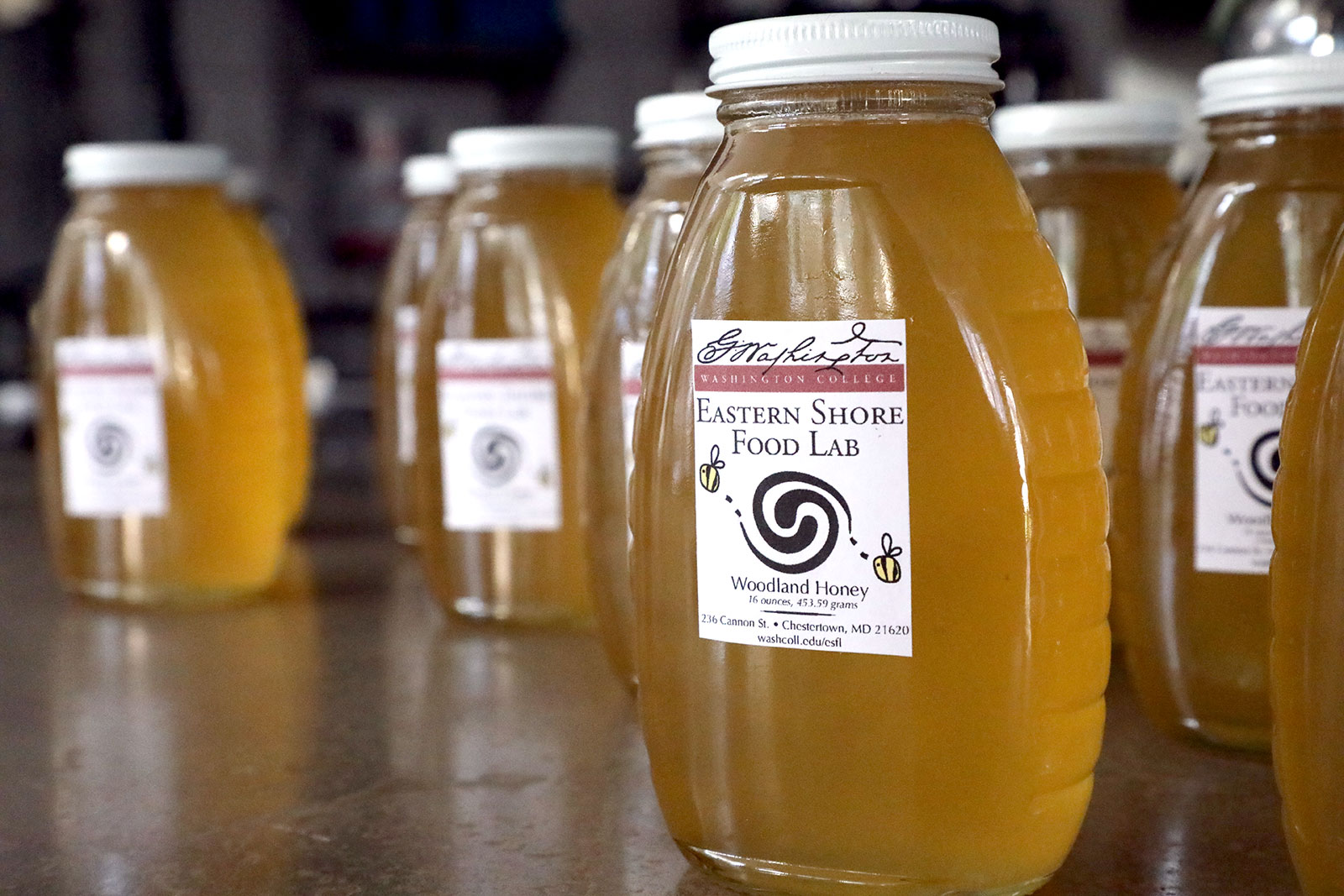Products
Honey
As we examine the logistics of supplying the best ingredients and preparing everything from scratch in a zero waste approach, we’re happy to start getting one of our favorite products in the community: honey.

Local Honey
We support local beekeepers, from students working managing our Campus Garden and River and Field Outpost apiaries to backyard beekeepers around Maryland’s Eastern Shore. Proceeds from every jar of honey we sell helps these beekeepers and funds ESFL programming.
To Purchase Local Honey
Support our students, local beekeepers, and your health by purchasing honey with the Eastern Shore Food Lab label. We sell honey in one pound jars for $20. To reserve your jar, contact Shane Brill at sbrill2FREEwashcoll .
Why Eat Honey
Honey connects us to plants, soil, insects, and sunlight. Cherished by humans since antiquity, honey contains many beneficial elements to support our health, drawn from a multitude of wild local plants.
Beyond Calories
One pound of honey has 1,333 calories (compared to white sugar at 1,748 calories) as well as protein, calcium, phosphorous, iron, beta-carotene, magnesium, sulphur, chlorine, potassium, iodine, sodium, copper, manganese, the B-vitamin complex, live enzymes, and vitamins A, C, D, E, and K.
Many Health Benefits
Honey possesses antibiotic, antiviral, anti-inflammatory, anticarcinogenic, expectorant, antiallergenic, laxative, antianemic, and tonic properties. It is also antifungal. As a prebiotic, honey supports digestion and immune system health. It increases calcium absorption in the body and is recommended to help prevent osteoporosis. It inhibits Heliocobacter pylori bacteria that cause stomach ulceration, as well as Staphylococcus aureus bacteria. Honey also improves respiratory ailments, increases hemoglobin, and many ancient accounts of longevity are associated with consuming honey.
Healing Wounds
Applied topically, honey promotes wound healing, often faster than traditional pharmaceuticals. It has also been demonstrated to accelerate recovery from Caesarian delivery and gangrene infection. It speeds recovery from burns and is diluted in solutions to preserve corneas, bones, and blood vessels intended for surgical transplantation.
Cooking with Honey
Pollen, propolis, antioxidants, and enzymes found in raw honey are destroyed at temperatures above 110°F. We encourage consuming honey that has not been pasteurized, a commercial process that prevents the natural crystallization of raw honey.
Not for Infants
Do not feed honey to children under 12 months old because soil-borne botulism spores might compromise their developing immune systems.